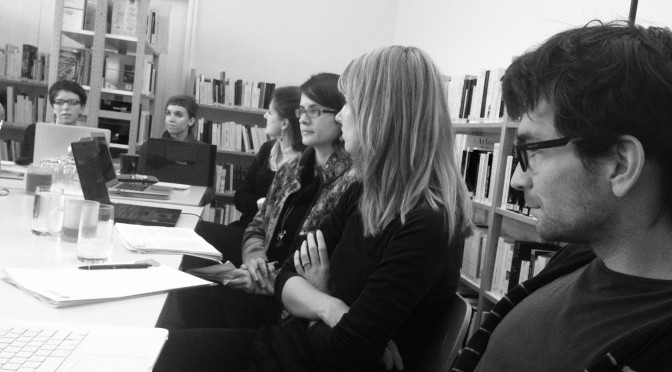Convener: Filip Vostal (CEFRES & FLÚ AV ČR)
Language: English
Seminar is open to students and scholars from CEFRES’s partner institutions. Each session will begin by an overview of one selected reading in French or English to be chosen from the list by a CEFRES fellow. The reader with texts will be available in electronic form.
See the program of the 2nd semester
See the program of the 1st semester
Interdisciplinarity can be defined as a dialogue between fields of knowledge in such a way that these fields are partially reorganized and reframed. It is usually distinguished both from ‘pluridisciplinarity’, which would merely juxtapose the disciplinary approaches, leaving them intact, and from transdisciplinarity, which integrates several disciplines into one approach.
On the one hand, the proliferation of the term interdisciplinarity has undoubtedly signaled a reflexive attitude across traditional academic disciplines and a clear intention for closer interminglings, cooperations and connections – of methodologies, modes of inquiry, theory (re)constructions and even knowledge application. Researchers are advised to think, behave and work synergistically. Furthermore, over the last decades – particularly under the auspices of post-industrial ‘knowledge economy’ – interdisciplinarity has become a widespread scientific and public practice. Ever since the 1960s the OECD then the EU have deployed interdisciplinarity as an instrument pitched against the enclosed and self-referential ‘academism’ in public research and foregrounded socio-economic impacts of scientific research. This political discourse, stressing innovation, application and closer links between science and society – ‘socialization of science’ and ‘scientification of society’ – was dominant in the 1990s when public research became structured not around disciplines but around problems and ‘global challenges’ to be diagnosed and solved. As major EU policy initiatives such as Horizon 2020 maintain, research is to be conducted in the ‘context of its application’ (Mode 2).
On the other hand, skeptics point out that deliberate dissipation of disciplinary boundaries challenges the very notion of disciplines as the basic unit of academia – that is methodological, theoretical and discursive discipline (in a sense of disciplining) that is arguably the foundational principle of scientific enterprise and rationality. Moreover, there are arguments maintaining that interdisciplinary is by and large a performative juggernaut, which conceals more than it reveals. Isn’t the concept interdisciplinarity standing for a standard and often natural scientific collaboration across disciplinary boundaries? Haven’t disciplines been always, in one way or another, interdisciplinary? Isn’t interdisciplinarity a powerful instrument steering science policy and governance rather than set of practices integral to scientific conduct? And yet, if we are to address, analyze and explain late modern world, is it possible not to be interdisciplinary?
There is no doubt that interdisciplinarity transforms disciplines, but the nature of such transformation is yet to be explored. In this seminar we will discuss such burning questions and explore the promises and pitfalls of interdisciplinarity, as a practice, discourse and imperative in research conduct.

